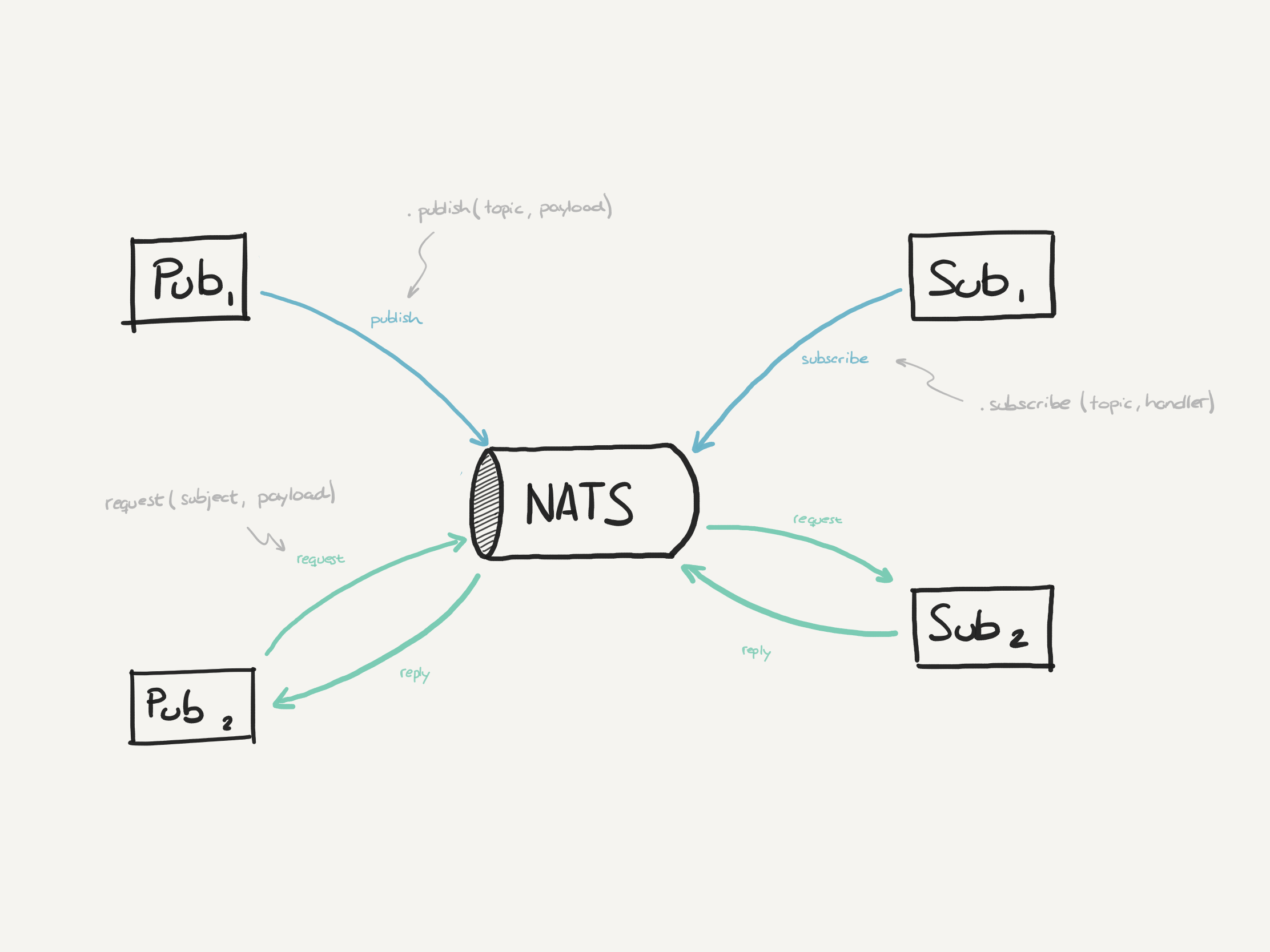This is a k6 extension using the xk6 system, that allows to use NATS protocol.
| ❗ This is a proof of concept, isn't supported by the k6 team, and may break in the future. USE AT YOUR OWN RISK! |
|---|
To build a k6 binary with this extension, first ensure you have the prerequisites:
- Go toolchain
- Git
- Install
xk6framework for extendingk6:
go install go.k6.io/xk6/cmd/xk6@latest- Build the binary:
xk6 build --with github.com/ydarias/xk6-nats@latest- Run a test
./k6 run folder/test.jsA Nats instance represents the connection with the NATS server, and it is created with new Nats(configuration), where configuration attributes are:
| Attribute | Description |
|---|---|
| servers | (mandatory) is the list of servers where NATS is available (e.g. [nats://localhost:4222]) |
| unsafe | (optional) allows running with self-signed certificates when doing tests against a testing environment, it is a boolean value (default value is false) |
| token | (optional) is the value of the token used to connect to the NATS server |
| Function | Description |
|---|---|
| publish(topic, message) | publish a new message using the topic (string) and the given payload that is a string representation that later is serialized as a byte array |
| subscribe(topic, handler) | subscribes to the publication of a message using the topic (string) and a handler that is a function like (msg) => void |
| request | sends a request to the topic (string) and the given payload as string representation, and returns a message |
A message return value has the following attributes:
| Attribute | Description |
|---|---|
| data | the payload in string format |
| topic | the topic where the message was published |
Some examples at the section below.
NATS supports the classical pub/sub pattern, but also it implements a request-reply pattern, this extension provides support for both.
import {check, sleep} from 'k6';
import {Nats} from 'k6/x/nats';
const natsConfig = {
servers: ['nats://localhost:4222'],
unsafe: true,
};
const publisher = new Nats(natsConfig);
const subscriber = new Nats(natsConfig);
export default function () {
subscriber.subscribe('topic', (msg) => {
check(msg, {
'Is expected message': (m) => m.data === 'the message',
'Is expected topic': (m) => m.topic === 'topic',
})
});
sleep(1)
publisher.publish('topic', 'the message');
sleep(1)
}
export function teardown() {
publisher.close();
subscriber.close();
}Because K6 doesn't provide an event loop we need to use the sleep function to wait for async operations to complete.
import { Nats } from 'k6/x/nats';
import { check, sleep } from 'k6';
const natsClient = new Nats({
servers: ['nats://localhost:4222'],
});
export default function () {
const payload = {
foo: 'bar',
};
const res = natsClient.request('my.subject', JSON.stringify(payload));
check(res, {
'payload pushed': (r) => r.status === 'success',
});
}
export function teardown() {
natsClient.close();
}